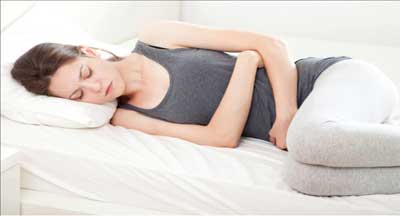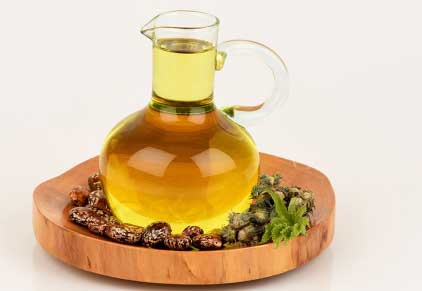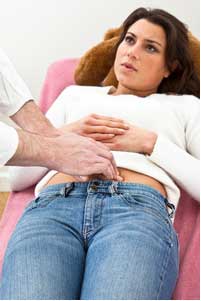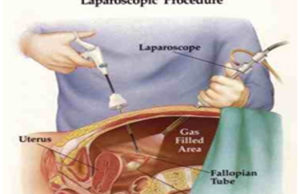Endometriosis: Symptoms, Risk Factors, Diagnosis and Home Remedies
What is Endometriosis
Endometriosis may be defined as an abnormal growth of endometrial cells outside the uterus. This commonly involves the pelvic organs such as ovaries and bowel. It may also involve tissues that line the pelvis. This condition affects approximately 176 million females throughout the world. Endometriosis may affect women of any age, but women between 25 to 40 years of age, are more at the risk of developing it.

Endometriosis
As endometrial tissues outside the uterus also goes through the menstrual cycle. It grows, thickens and breaks, but in the lack of a way to exit it causes irritation, scars and adhesion. This causes pain and fertility problems.
A woman that suffers from infertility is more likely to develop endometriosis as a comparison to fertile women. But this definitely does not mean every infertile woman has endometriosis. Also, this condition may not be responsible for infertility.
What are the Symptoms of Endometriosis
Endometriosis results in painful menstruation, heavy bleeding during the periods, painful intercourse, pain while passing urine or stool, and infertility. Also, it causes fatigue, constipation, diarrhea, bloating of the stomach and nausea during menstruation.

Symptoms of Endometriosis
What are the Risk Factors for Endometriosis
The exact cause of endometriosis is not known, but back flow of the menstrual fluid or retrograde menstruation may be considered a cause. There are several risk factors of endometriosis such as not giving birth to a baby, periods starting at an early age, Late menopause, menstrual cycles less than 27days, alcohol consumption, low BMI, family history of endometriosis, uterine abnormality or any medical condition. The environmental toxins and weak immune system may also pay a role in the development of endometriosis.
What are the Complication of Endometriosis
Endometriosis may lead to Infertility or ovarian Cancer.
What is the Diagnosis of Endometriosis
Your doctor may ask you to questions related to the menstrual cycle. Besides this pelvic examination is done. Other tests that are done includes ultrasound and laparoscopy.
What is the Treatment of Endometriosis
Endometriosis is treated by medications and if needed surgery is done. The medication includes painkillers, hormonal therapy, Hormonal contraceptives, Gonadotropin-releasing hormone agonists and antagonists, progestin and danazol.
If medicines are not successful in treating the case, conservative surgery may be done. In the case of infertility invitro fertilization is recommended. In the case conservative surgeries do not work hysterectomy may be done. However, hysterectomy is the last resort to be considered.
What are the Home Remedies to treat Endometriosis
The symptoms of endometriosis can be alleviated by simple home remedies discussed below:
1.Flax seeds- flax seeds contain omega-3 fatty acids and antioxidants. It slows the growth of abnormal endometrial cells and tissues. Also, it effectively flushes out the toxins from the body.
Soak about 3 to 4 tablespoons of flax seeds in a cup of water. Leave it for the night. In the morning strain the solution and drink it. Take this until the symptoms subside.
Alternatively, you may also take 2-3 tablespoon of ground flaxseeds daily with yogurt, smoothies or soups.
* Make sure to drink lots of water or it may cause constipation.
2. Castor oil- Castor oil has been found effective in getting rid of extra tissues and toxins. Use it at the beginning of the menstrual cycle as soon as cramping is noticed. This will ease the severity of the symptoms of endometriosis throughout the cycle.

Castor oil
Mix 8 drops of lavender essential oil to one-fourth cup of castor oil. Mix properly and soak a washcloth with it. Heat this cloth in microwave for a few seconds till it is warm. The temperature should be bearable. Place this on the abdomen. Place a hot water bottle over it. Leave it for a half hour to 1 hour. This is followed by wiping off or rinsing off with warm water.
3. Turmeric- Curcumin present in the turmeric is anti-inflammatory. Also, turmeric posses anti-endometriotic property. Add a teaspoon of turmeric and a teaspoon of ginger to a cup of warm water. Also, add a teaspoon of honey and a teaspoon of lemon to it. Drink this concoction once in a day till you are relieved with endometriosis.
* Women who take blood-thinning medicines should avoid it.
4. Chamomile tea- chamomile tea has anti-inflammatory properties. It eases symptoms related to endometriosis. Being a natural diuretic it also flushes out the toxins. Drink chamomile tea 2 times in a day till your symptoms subside.

Chamomile tea
5. Dandelion roots- Dandelion regulated the level of hormones and flushes out the toxins. Add a teaspoon of dried dandelion roots to a cup of steaming water. Steep it for 10 minutes. Strain the solution and drink it 2 times in a day.

Dandelion roots
Beside the above remedies try to curb stress, practice yoga, meditation and drink lots of water. Reduce the intake of fatty foods as they stimulate the secretion of estrogen in excess. This causes intense pain and bleeding. Also, try to maintain an ideal body weight.
If you find this article informational do let us know.
















































